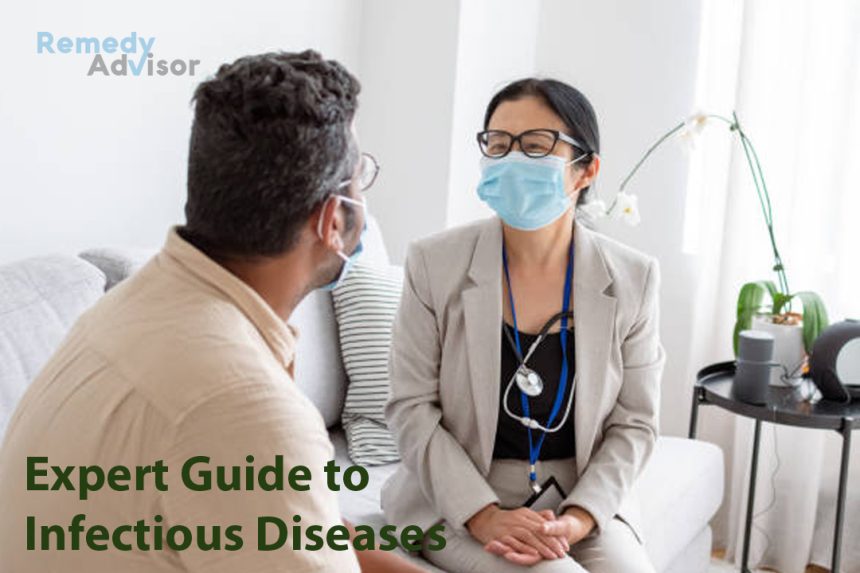Many of the diseases that seem to strike out of the blue actually have their origins in our personal habits. Here’s how to protect yourself and your family from infectious illnesses
Wash your hands
Colds and flu are contracted not by being near a coughing, sneezing person, but by touch.
Self-defense
Wash your hands as soon as possible after touching someone who’s ill after touching something an ill person has touched and just periodically when you’re living or working with an infected individual.
Until you wash up, don’t touch your eyes or nose. Those are the main entry points for cold viruses. For times when no sink is handy, carry a supply of alcohol-based wipes.
Prepare food carefully
Much of the meat and eggs in the supermarket are tainted with salmonella.
Escherichia coli (E. coli) is present in up to 4% of ground beef, pork, poultry and lamb. It’s also found in unpasteurized milk and juice and other beverages.
To prevent food poisoning
- Refrigerate food immediately after preparing or serving it. If it’s been sitting out for more than an hour, throw it away.
- Avoid steak tartare and raw or undercooked eggs. Steer clear of Caesar salad and homemade eggnog and mayonnaise. If any yolk from a contaminated egg remains liquid, salmonella can survive.
- Wash utensils or surfaces that have been in contact with raw meat or eggs before using them again.
- Drink only pasteurized milk and juice.
- Avoid bottom-feeding fish. Grouper, red snapper, amberjack and barracuda can harbor ciguatera, a disease-causing toxin.
- Steam shellfish for at least 15 minutes. Thorough steaming takes care of E. coli and other infectious agents that are commonly found in clams, oysters and mussels.
Guard against tick bites
Most tick bites are benign. But since Lyme disease and other tick-borne illnesses can be hard to detect and treat, it’s best to avoid getting bitten in the first place.
During tick season (April through the first frost), take these precautions
- When walking in wooded or grassy areas, wear long-sleeved shirts and long, loose-fitting pants tucked into socks.
- Use insect repellent containing DEET. A 30% concentration is best. Put it on your clothing and any exposed skin.
- If you have outdoor pets, use tick-killing powder or spray. Your veterinarians can recommend a good brand.
- Check yourself for ticks daily. Have a family member check your scalp and other hard-to-see areas. Look closely some ticks are the size of a pinhead.
If you find a tick, do not remove it with alcohol, petroleum jelly or a lighted match. These methods can cause the tick to regurgitate under your skin, raising your chance of illness.
Better: Using tweezers gently grasp the tick and pull steadily outward at the same angle the tick is facing.
Keep the tick in a jar of alcohol, so it can be identified later if you develop a bull’s-eye rash or other suspicious symptoms
Prevent urinary infections
Women who are prone to urinary tract infections (UTIs) may want to consider using a birth control method other than the diaphragm.
Spermicidal jellies and foams used with a diaphragm create an environment hospitable to bacteria.
Women should also urinate after intercourse to flush out infection-causing bacteria. UTIs are rare among men.
Avoid parasites in water
In most areas, tap water is chlorinated to kill bacteria. But chlorination does not kill Cryptosporidium and other parasites.
Self-defense: If you have poor immunity, boil water for one minute or install a reverse osmosis water purifier under your sink.
Be careful while traveling
Check with a doctor well in advance of your trip and get any recommended vaccinations.
In the US, Canada, Western Europe, Australia, New Zealand and Japan, food and water are usually safe. In other regions, eat only fully cooked or freshly peeled foods. Bring your own water or drink carbonated beverages or wine.
Watch out for ice cubes and the mixers in mixed drinks.
To purify water:
Boil it for at least one minute. Or add 2% tincture of iodine (five drops per quart of water), and let it sit for at least an hour. This method is good for suspect tap water and water from a stream or lake.
If you visit an area where malaria and/or other insect-borne diseases are endemic, wear light, loose fitting clothing and mosquito netting use DEET spray and stay indoors as much as possible.
Legionnaire’s disease
Smokers, elderly people and individuals taking immune suppressant drugs are at risk for Legionnaire’s disease.
The bacteria that cause Legionnaire’s are often found in shower heads, air conditioning systems and cooling towers in the US and abroad.
Self-defense: Stay as far away as possible from cooling towers. And before using an unfamiliar shower, sterilize the shower head by running the water at its hottest setting for five minutes.







